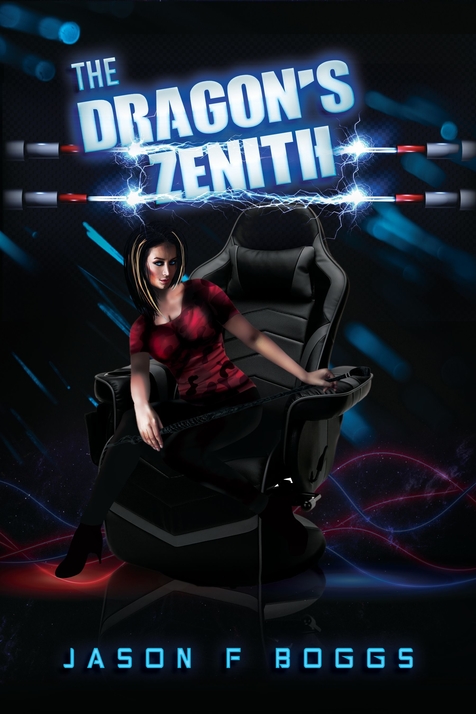
Strap in for a nonstop cosmic ride in The Dragon’s Zenith, the final book in the Dragon Trilogy by author Jason F. Boggs. Wrapping up a galaxy’s worth of loose ends in style, this novel delivers an ultimate showdown loyal readers may not be expecting, as well as unexpected new allies, strange alien worlds, and that engaging blend of fantasy and sci-fi that this series has done so well from the start.
With the world-building basics and character exposition out of the way, this third and final novel dives right into the action, as well as the personal entanglements. Alene and Nelson make for a compelling “will they, won’t they” pair at the center of this story, star-crossed as they are, but the constant crises and action-packed disaster scenes present plenty of obstacles to this romantic payoff.
Combine this with an expansive universe to explore – thanks to the clever sungates – and a plot strewn with burning cities, civil wars and raucously fun action, and you end up with a well-balanced plot that keeps readers guessing. The thematic undercurrents of revenge, twisted ideals of love, betrayal, communication patterns, and cross-cultural understanding also make this a more complex tale than first meets the eye.
At times reminiscent of “Star Wars” in terms of scope and the ultimate showdown of good and evil, the story throughout the trilogy has been reminiscent of other fantasy and sci-fi classics. There is deeply unique character development that George R.R. Martin would admire, the off-beat humor of Douglas Adams, the visionary imagination of Asimov, and the straight-talk prose of Terry Pratchett. Despite these comparisons, the book is still undeniably original.
On the technical side of the writing, however, there is certainly room for improvement, which has been the case throughout this series. There are some forgivable but noticeable grammatical errors, but more obviously, the writing can often be heavy-handed. There are immediate explanations for why characters say specific things, which can make readers feel spoon-fed information. The use of idiomatic language is also rampant, which sticks out in a novel set nearly a century in the future. Many sci-fi authors miss that unavoidable truth – that language is forever changing – which can make it difficult for readers to fully lose themselves in the story.
These critiques are overshadowed, in most cases, by the plot’s insistent pace and the emotional explorations that Boggs is so adept at conveying. These are far from inaccessible characters in some far-flung, impossible future. The core characters have become multi-dimensional over the course of this series, with uncertainties and flaws and chinks in their armor, resulting in a kaleidoscopic range of experience and insight. Self-reflective characters and probing narration lead to interesting philosophical and moral quandaries, of “gods” and fate and love being tied to destiny, for a novel that is more than just a standard work of sci-fi/fantasy.
As unrealistic and alien as this epic saga may appear to be, it appeals due to its universality, as Boggs is an author unafraid to face the hard questions of existence that we all eventually ask, making The Dragon’s Zenith a stirring end to this original trilogy.
Book Links
STAR RATING
Design
Content
Editing
Get an Editorial Review | Get Amazon Sales & Reviews | Get Edited | Get Beta Readers | Enter the SPR Book Awards | Other Marketing Services























Leave A Comment